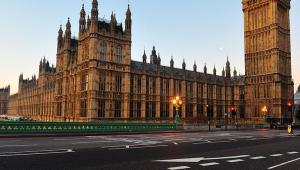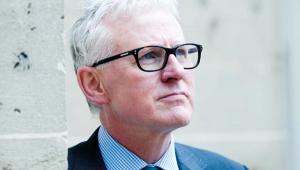In a report released today, the public sector trade union said the government expects to receive a £2.4bn windfall from business taxes in 2017 and for the two years after that. This is because it now receives more in business rates from English local authorities than it pays out to councils under the revenue support grant.
Unison wants Whitehall to hand back this new money to councils to help alleviate social care funding cuts, which would also allow the 2% council tax precept to be scrapped.
In the report, Investing in Social Care, Unison quotes statistics from Age UK which indicate that between 2010 and 2014, the number of older people receiving home care fell by 31.7%, day care places plummeted by 66.9%, spending on home care dropped by 19.4%, while the number receiving meals-on-wheels fell by 30%.
Moreover, the number of people trapped in hospital due to inadequate or non-existent social care is at record levels, Unison said. In August the number was 62,807, which represents a 40% increase on last year. The trade union put the cost of this to the NHS at around £900m every year.
Unison general secretary Dave Prentis said: “The social care system is in dire straits. There’s simply not enough money to fund the care that’s needed.”
“Investing £2.4bn in social care would be money extremely well spent. Not only would it mean better care for the elderly, it would ease the cost pressures on homecare staff, and free up beds in the NHS.”
In 2013, the government brought in changes that enabled local authorities to keep 50% of business rates, with the remaining half paid into a central government account. The government then pays around £15bn to councils in revenue support grants. For the first two years, the government’s share of the business rates was less than the amount it paid out to councils in revenue support, but in 2015/16, the account moved into surplus. This surplus will continue to grow for the next two years.
Proposals drawn up by then-chancellor George Osborne in 2015 will enable councils to retain 100% of business rates by 2020, although the pitfalls of this approach have been highlighted by CIPFA.
Unison suggests that allocating the £2.4bn towards councils’ social care bills would allow the two per cent council tax precept to be scrapped. At present, councils are able to raise extra cash for social care by increasing council tax by up to 2% every year. However, Unison said this system is unfair because it enables councils in more affluent areas to raise more money than those with poorer housing. Thereby, elderly people in deprived areas lose out.
According to Prentis, those suffering the most from social care cuts are the elderly the disabled, who rely on daily visits so they can stay in their own homes.
He said: “Visits are often too short to administer the care needed, or care packages simply aren’t available. Then people have to stay in hospital far longer than is good for them, in beds that are desperately needed for other patients.”
Prentis has written to the chancellor ahead of next week’s Autumn Statement calling for other changes that would benefit the public sector. These include ending public sector job cuts, fully funding student nurse bursaries and ending the 1% public sector pay cap.



















